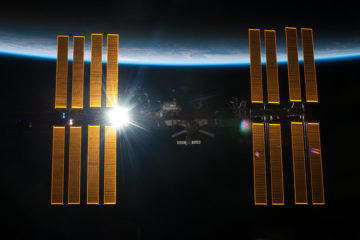
OxPol Blogcast Episode 6: The Space Debris Problem
Welcome to the OxPol Blogcast, a podcast where we will be sharing research, analysis, and experiences from members of the University of Oxford’s Department of Politics and International Relations. On each, episode we will talk to a guest about a piece they’ve written for the OxPol Blog. Then, we’ll discuss their larger research agenda, their insights on conducting political science, and their time at Oxford. On this episode of the OxPol BlogCast, host Chase Harrison talks to MPhil graduate Samantha Potter about the space debris problem, the laws and procedures that govern outer space, and what it looks like to do space research at Oxford. Read the original blog post here: blog.politics.ox.ac.uk/what-chinas-f…bris-problem/ This work is the author’s own and does not …

What China’s Falling Rocket Tells Us About the Increasing Orbital Space Debris Problem
In early May, the international community held its breath as China’s Long March 5B rocket plummeted uncontrollably back to earth. While the debris landed safely in the Indian Ocean, silencing concerns about a potentially dangerous impact, the increasing frequency of uncontrolled re-entries highlights the importance of state responsibility in safely disposing of space debris. This is not the first time China neglected to dispose properly of its orbital debris. A similar incident occurred this time last year when an out-of-control Chinese rocket–and the largest human-made object ever to return to earth uncontrolled from space–dropped debris on Cote d’Ivoire and in the Atlantic Ocean. While most debris disintegrates upon atmospheric re-entry, some components with higher melting points can persist and penetrate …
Have We Finally Moved Past the Unilateral Age of Apollo? The Artemis Accords, Explained
The United States, under the Trump administration, has aimed to excite interest in space activities, including through the highly publicised creation of the Space Force and the manned space flight missions with SpaceX. Importantly, the announcement of the Artemis Accords in mid-May is an extension of such an effort. The Accords are envisioned as a set of bilateral agreements with the intent to return astronauts to the moon and beyond. Led by the United States and a series of commercial and international partners, they mark a seminal development in the outer space governance regime. As the United States and its international partners venture to create and strengthen outer space governance, non-space faring nations must be included in future agreements to ensure they are not systematically excluded from accessing lunar resources and development opportunities. The Artemis Accords program is spearheaded by the National Aeronautics …










